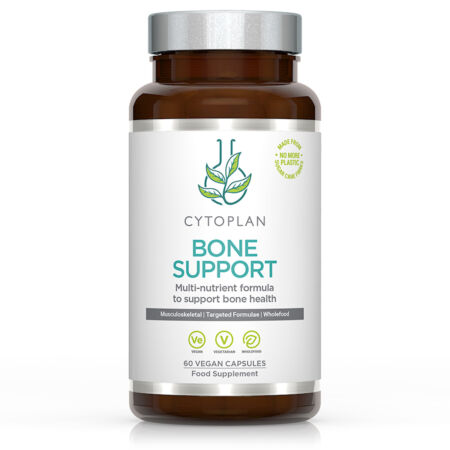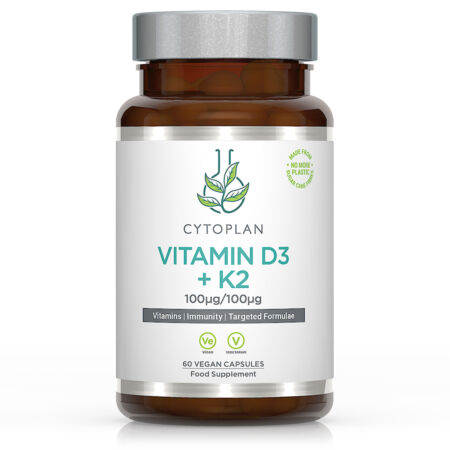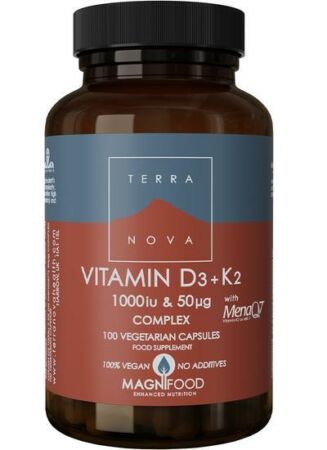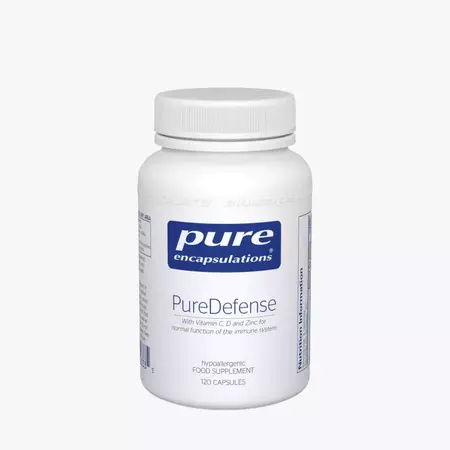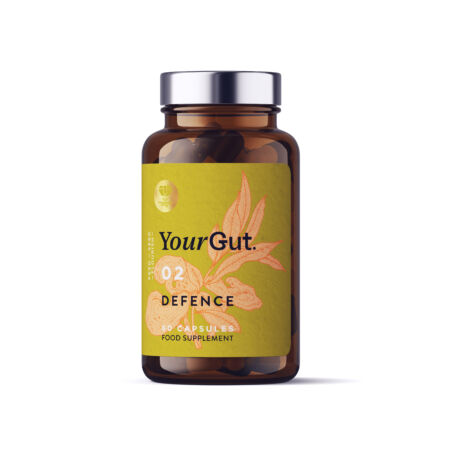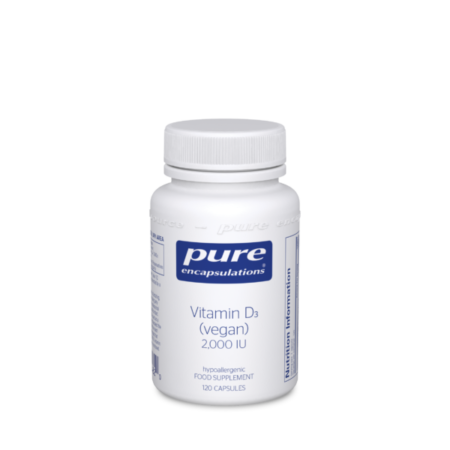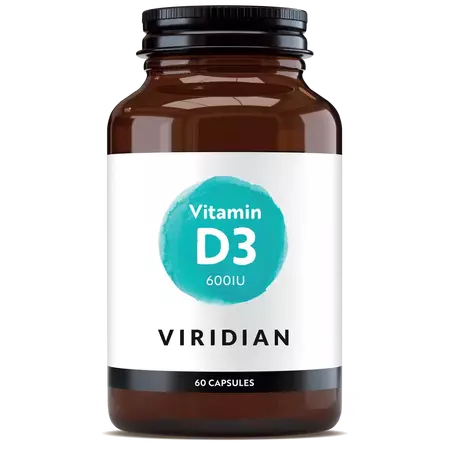What is Vitamin D?
Other names: 1,25-dihydroxyvitamin D, calciferol, vitamin D2, vitamin D3
This article’s title is actually factually incorrect as although referred to as vitamin D, this is actually more correctly a hormone rather than a vitamin, or even more correctly an active molecule called 1,25-dihydroxyvitamin D but let’s just refer to it as vitamin D for ease.
How do humans obtain vitamin D?
Our bodies produce active vitamin D after exposure to sunlight, and we get some vitamin D from food. Vitamin D is also a hormone. Hormones, in this case, are made in the body and then go on to have an effect on the different tissues in our body. We will cover the role of vitamin D as a hormone in this article.
From food
By the very definition, the term vitamin comes from the term ‘vital amine’, that is a substance that is essential for health that cannot be made by the body and therefore, is essential that this is obtained from the diet. Few foods are naturally rich in vitamin D3. Foods such as oily fish, eggs and mushrooms contain small amounts of vitamin D, but are recommended as being the best for dietary vitamin D. As we will go on to explain, there are many factors which can vary how much vitamin D we can utilise in our bodies.
From sunlight exposure
Although we can obtain small amounts of vitamin D from our foods, our main source actually comes from manufacture in our skin cells when given exposure to UVB from sunlight. There is a two-step activation process, primarily via the liver and the kidneys that vitamin D goes through to be biologically active as a hormone[i]. Hence why the health of these vital organs is also of importance when it comes to both vitamin D activity and storage.
Who is at risk for vitamin d deficiency?
A retrospective study looking at vitamin D status in the UK primary care setting between 2005 and 2015, showed that one third and two thirds of adults (depending on ethnicity) tested during this time had levels below 30 nmol/L. The younger, male and economic deprivation groups were also positively correlated with higher deficiency levels[ii]. This is all bearing in mind that the classification for deficiency in this study was looking at blood levels, known as 25(OH)D, under 30 nmol/L, whereas it is recognised by many guidelines that target serum levels should be at least 50 nmol/L to move out of the suboptimal range and into the optimal range[iii].
Despite the fact that we have a huge problem with deficiency levels, Vitamin D is critical for many biological functions in the body and we have receptor sites for it in pretty much all tissues and cells in the body, from the intestines, to the bones, to the brain and even fat cells. When we consume a meal and have eaten enough, given adequate vitamin D levels, a hormone leptin is then produced to signal that we are full. In deficient states of vitamin D, we are more predisposed to weight gain and type 2 diabetes due to an increase in insulin resistance, which further exacerbates the continuum towards this condition through poor diet and lifestyle choices[iv].
Bone, muscle and joint health
Until more recently, vitamin D was primarily associated with bone health where it plays an essential role in calcium uptake and bone mineralisation, which is positively associated with bone mineral density. It has been known for many years that prolonged deficiency can lead to rickets in children and osteomalacia in adults. Not only is vitamin D essential for the health of the bones and prevention of osteopenia and osteoporosis, but it is essential for the health of the muscles that surround and support the bones, thereby preventing falls and fractures in older age[v].
Along with supporting bones and muscles, vitamin D has also shown anti-inflammatory activity when it comes to the health of the joints and joint pain. Vitamin D supplementation to bring levels over 50 nmol/L have been shown to have a positive impact on pain associated to Osteoarthritis[vi]. Vitamin D deficiency is also linked to the autoimmune condition of Rheumatoid Arthritis[vii]
and more information on the link between this vitamin and its role in the immune system is detailed below.
Digestive health
The intestinal tissue is constantly interacting with the external environment from the things that we consume in our diet and the environment that we are exposed to. The health of this mucosal layer of tissue that protects our body from pathogenic organisms and ensures proper nutrient uptake from our diet has a requirement for optimal vitamin D levels to maintain this barrier of tight junctions[viii]. Not only is vitamin D required for the health of the intestinal tissue but it can also positively affect the health of the microbiome and plays an anti-inflammatory role, especially in relation to digestive inflammatory conditions such as Inflammatory Bowel Disease (IBD). Some epidemiological studies show that people with higher serum vitamin D have a lower incidence of IBD, particularly Crohn’s disease. Furthermore, vitamin D deficiency is associated to dysbiosis of the microbiome with a potential to cause severe Colitis[ix].
Immunity
The big topic of the moment is the relationship between immunity and vitamin D. It has been reported many times in mainstream media for its correlation to outcomes of those infected with COVID 19. It has always been hypothesized that vitamin D may be helpful in the prevention of acute respiratory infections (ARIs) based on the fact that these infections are more common in the winter when population levels of vitamin D tend to be lower[x]. Testing this theory has ramped up given that researchers are looking for answers in relation to the pandemic and many more studies have been undertaken. A large meta-analysis of over 11000 patients over 25 trials showed a preventive effect of vitamin D supplementation with a greater benefit with those supplementing daily or weekly rather than large bolus doses[xi].
Furthermore than immunity in association to infections, many studies look at vitamin D status in relation to cancer prevention as there is growing evidence to support a protective relationship with higher levels of vitamin D status and lower risk of cancer[xii]. Again, in autoimmune conditions such as Systemic Lupus Erythematosus, Type 1 Diabetes and Multiple Sclerosis, vitamin D deficiency and insufficiency is highly associated with the risk of these conditions and is being considered as a therapeutic target to prevent and ameliorate these conditions[xiii]. It also plays a role in atopic allergies too where data is emerging around its role in asthma, eczema and hay fever[xiv].
Brain health and mood
As mentioned previously there are many target tissues for vitamin D and the brain is no exception. Dr Bredesen in his pioneering research in relation to the multifactorial approach to reversal of cognitive decline in early onset dementia, recognises vitamin D as one of his original key areas of his therapeutic system to be optimised between 50-100 nmol/L[xv]. It should be of note that was only part of the picture with many other nutrients and lifestyle considerations all to be addressed as part of the protocol.
In addition to memory and cognition is mood when it comes to brain health. Low mood and depression are complex areas but vitamin D has been shown not only to induce serotonin manufacture but it is also likely to elevate serotonin in the central nervous system[xvi]. Again, there can be a number of both internal and external considerations when it comes to low mood and depression but vitamin D is certainly part of the picture when it comes to optimising mood.
Getting your vitamin D levels checked
Everyone should have his or her vitamin D level checked at least once a year.
Below 25nmol/L is almost universally agreed to be deficient. However, many believe that below 50nmol/L is inadequate. Research currently shows that between 70-80nmol/L is associated with the lowest risk of diseases, such as cancer and heart disease, long term with 75nmol/L considered optimal.
It is recommended that you recheck your vitamin D level within 2 weeks to 2 months after starting supplementation, depending on your medical and health condition. Other lab tests for calcium, ionized calcium, magnesium, and parathyroid hormone level (PTH) may be done during the recheck.
If you are taking a vitamin D supplement, adequate calcium and magnesium intake are also required.
In summary
As you can see we have only touched upon a number of areas of where vitamin D is clinically relevant but it should be noted that the areas of health applications are vast. In fact, the vitamin D receptor (VDR) is expressed on most cell types and may activate between 200 to 500 genes, many of which are related to the immune system[xvii]. Inclusion of other areas especially around the correlation between vitamin D deficiency and increased risk of heart disease, stroke and hypertension should be highlighted[xviii]. But yet again, as with many of the other conditions aforementioned, there are many other dietary and lifestyle factors to be considered when it comes to cardiovascular disease.
We should also note the variables at play when it comes to vitamin D status as not only does it rely on factors such as latitude, sun exposure, cholesterol, dietary sources from food, and melanin levels in skin, but there is also a variability in utilisation of vitamin D via potential genetic polymorphisms on the vitamin D receptor[xix].
Given the importance of this vitamin when it comes to our overall health and taking into account that a significant proportion of the UK are deficient in this nutrient, supplements may confer a cost effective health benefit especially during the winter months when our sunlight exposure can be limited. It should be noted that as a fat soluble nutrient we do retain storage of vitamin D given the right conditions and this also means that it is important to take supplement forms with food for optimal absorption. Some forms are also combined with other nutrients depending on their application so for example with zinc, vitamin C and beta glucans in immune complexes and with calcium and magnesium and other cofactors for bone health. It is also noted that in some applications, efficacy is enhanced when combined with vitamin K, especially in relation to cardiovascular and bone health as both play a role in calcium metabolism[xx].
Talk to us about vitamin D
We are always here to discuss the right supplement, dosage and form for your requirements and we can also testing to look at vitamin D status so please contact us to find out more.



